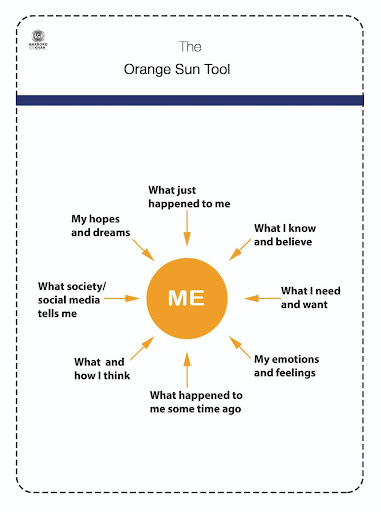October 7, 2024
Social media affects our life sometimes for the better and other times not so, but the pay it forward concept has flooded the socials with many examples of paying forward kindness to unknown recipients. You might think this is a new concept but in fact the idea has been around in different guises since the 1980’s. About 40 years ago in the San Francisco Bay area the first practice of “Random Acts of Kindness and Act of Senseless Beauty” was published by author and activist Anne Herbert. In 2000, American author Catherine Ryan published the novel Pay it Forward and inspired Pay It Forward Day, which started in 2007 as a celebration of how one small act of kindness can make a big impact in the world.
What if we explored this movement in the context of our interactions at school, specifically interpersonal relationships? In one school day there can be a range of opportunities to celebrate, and challenges to resolve. It is hard to not let our recent experiences affect our interactions for better or worse. On some days it can feel like a very big ask to put our feelings and frustrations aside.
What if we thought more intentionally about what we would like to pay forward to our next interaction? How can more experienced educators model best practice and collaboration to support teachers coming into schools?
The Orange Sun Toolⓒ, one of our Harbord & Khan Thinking Toolsⓒ, can support students as well as teachers in self-regulation. The tool mentions hopes and dreams and we realize this may appear naive. We understand for some students this can be challenging; however, it is still worthwhile for others. Reflecting on these prompts can impact our attitudes and behavior both currently, and from our past experiences. By answering the questions posed in this tool, it can help the user consider other perspectives and have greater insight and empathy towards others. This is a trait we all need to grow in our school community whether it be the students, faculty, leadership, school board or our parents.
Positive movements relating to paying it forward continue to grow. Pass it Forward is an American group focused on offering free therapeutic athletic training, education, and mentorship to empower youth and young adults. Coaching, mentoring, Professional Learning Communities (PLC’s) include both individuals and collaborative teams who aim to improve both student, educator learning and wellbeing.

Another example that could inspire school communities is the idea of time banking. It is described as “… a circle of giving and receiving where members create caring and supportive networks while exchanging services”. At timebanks.org, there are four types of exchanges, 1:1, 1: Many, Many:1 and Many: Many.
Ultimately whatever our role is in the school and community, it boils down to trust, communication and collaboration in relationships. If we think of this in relation to leadership and coaching, as NCAA Basketball Coach Tara VanDerveer commented, “I think trust and openness is probably the foundation of any relationship.”
As a coach, Van Derveer focuses on the power of collaboration between the team and herself. “I can’t do it by myself, and they can’t do it by themselves. But as a team, we can”. This would be a great motto for our faculty training sessions. Social media usage can be individual actions in isolation or can create communities. Schools can also be in these categories, so what do we learn from our students, and how are their brains wired to learn? Learning is far more collaborative so teaching should also be far more collaborative. Can we start the ball rolling in our schools to support the Pay it Forward concept?
References
Abrahams, M., & VanDerveer, T. (2024, June 30). Listen up, leaders: A record setting coach’s guide to communication. Gsb.stanford.edu. Retrieved September 25, 2024, from https://www.gsb.stanford.edu/insights/listen-leaders-record-setting-coachs-guide-communication
The Creative Co-Lab. (Ed.). (2024). Pass it forward. Passitforwardla.org. Retrieved September 25, 2024, from https://www.passitforwardla.org/
Timebanks (Ed.). (2024). How does TimeBanking work? timebanks.org. Retrieved September 25, 2024, from https://timebanks.org/timebank-software/timebanking-101-faqs/how-does-timebanking-work
You may also be interested in reading more articles written by Harbord & Khan for Intrepid Ed News.


